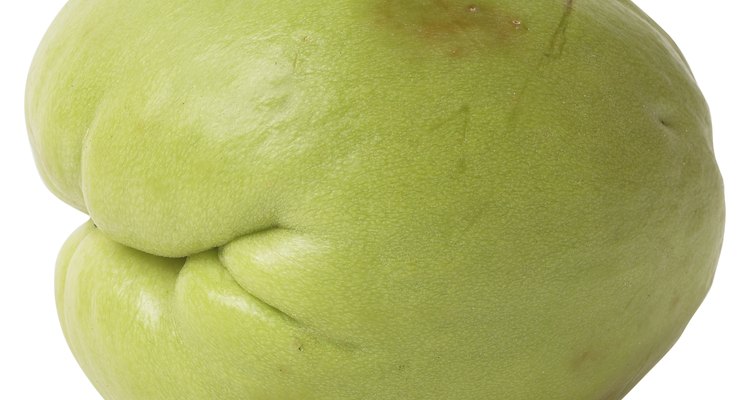
Jupiterimages/Photos.com/Getty Images
Persimmon consumption dates to ancient China. The round fruit with a glossy, orange-red skin arrived in the United States in the 19th century. Persimmons have many health benefits since they are rich in fiber, vitamin A and vitamin C.
A Healthy Snack

Hemera Technologies/PhotoObjects.net/Getty Images
Rather than reach for a snack full of calories, eating a persimmon ( like most fruit), is a low calorie way to munch between meals and feel satisfied. A typical persimmon contains 70 calories per 100 grams, is very low in fats and rich in fiber. According to the CDC, one persimmon contains more than 20 percent of your daily fiber. Eating fiber helps regulate and normalize your bowels, helps you lose weight and lowers blood cholesterol levels.
Vitamins A and C

Maria Teijeiro/Photodisc/Getty Images
One persimmon contains about 50 percent of your daily allotment of vitamin A and 20 percent of your vitamin C, according to the Centers for Disease Control and Prevention website (CDC). Vitamin A is helpful for fighting age-related eye ailments such as macular degeneration. It is also helpful for fighting cancer, enhancing the immune system and for people with skin conditions such as acne, psoriasis, eczema and sunburn. Vitamin C helps boost your immune system so you can better fight off infectious agents.
Antioxidants

George Doyle & Ciaran Griffin/Stockbyte/Getty Images
Fresh persimmons also provide numerous other important nutrients. Many of the nutrients in persimmons are considered antioxidants, such as manganese. Antioxidants work by eliminating free radicals, atoms that destroy cells, potentially leading to cancer, aging and other disease. Other antioxidants in persimmons include lycopene and beta-carotene. Persimmons are also rich in copper, which promotes red blood cell health.
Warnings

BananaStock/BananaStock/Getty Images
Although persimmons are full of good nutrients, eating too many can be harmful to your health. Persimmons contain a compound called shibuol. Shibuol can react with the acid in your stomach and create another sticky compound known as bezoar. If you eat too many persimmons, the bezoar created in your stomach can eventually lead to intestinal blockage. In some severe situations, people who eat too many persimmons have required surgery to remove the obstructions. Only eat persimmons on a full stomach to avoid this issue.
Related Articles

Nutrition Information on Blueberries

Foods From Rainforest Plants

How to Peel Guava

Fruits & Vegetables Rich in Potassium ...

Vitamins for Mental Alertness

List of Retinoids

How to Reduce Acne Inflammation

Best Fruit Juices to Cleanse the Colon

How to Cook Papaya

Is an Orange Healthy to Eat for Your ...

How to Bake Nectarines Like Peaches

Nutrition Drinks for Diabetics
What Fruits Have Edible Peelings?

Bitter Melon for Acne

Grapefruit Skin Benefits

Can Age Spots Be Reversed?

How to Juice Kiwi Fruit

Why Are Fruits Important?

Nutritional Content of Bananas

Fuji Apples Health Benefits
References
Resources
Writer Bio
David Harris is a writer living in Portland, Ore. He currently is the editor-in-chief of the online magazine Spectrum Culture. He holds a Master of Fine Arts in creative writing from Sarah Lawrence College.
Photo Credits
Jupiterimages/Photos.com/Getty Images